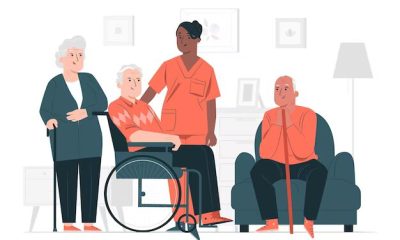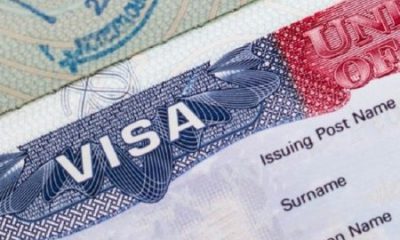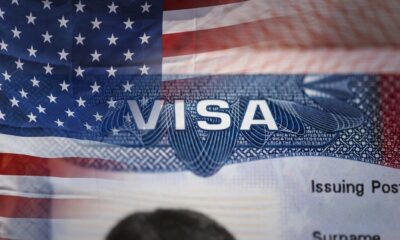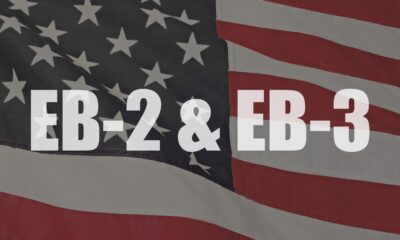Visa
US Visa Denial In Detail: Reasons And How To Re-Apply
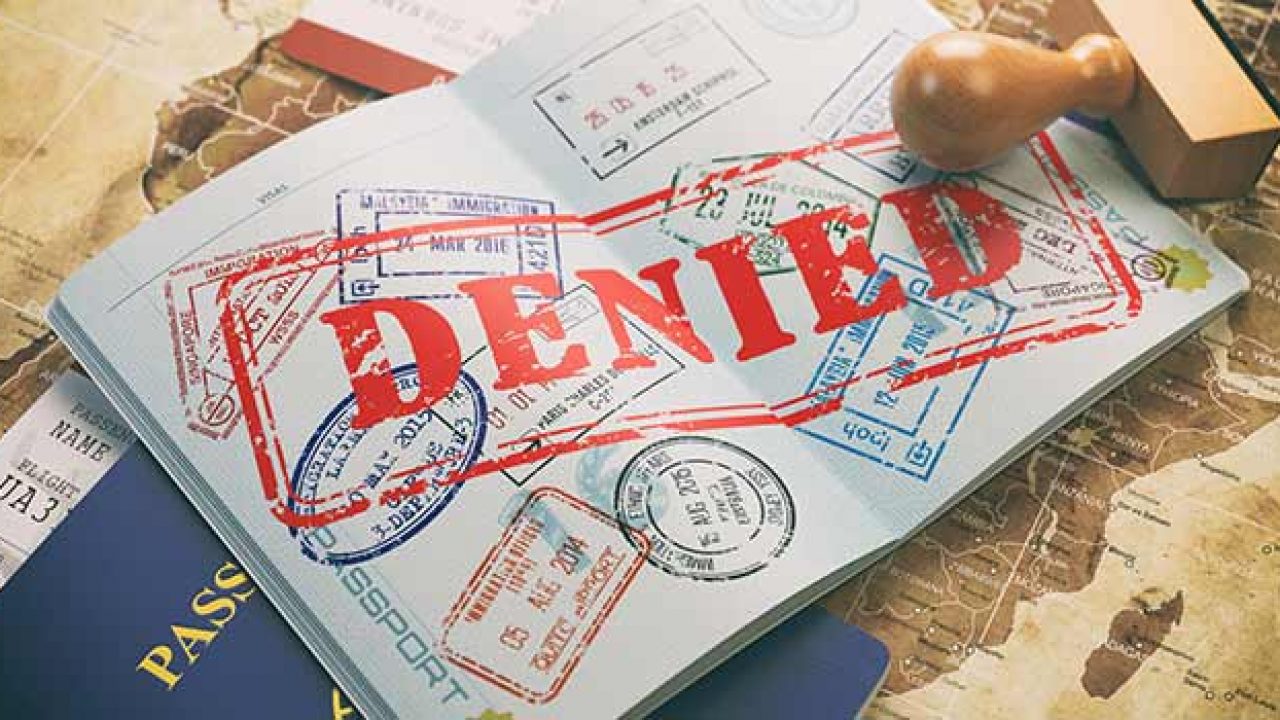
US visa applications are approved or denied according to a precise and specialized policy. A consul interviews most applicants after reviewing each application. The process is rigorous and may seem difficult to some. Especially after visa rejection, when the applicant is sad and puzzled.
However, the US visa policy clearly explains each visa type, requirements, and application process. Special provisions of the Immigration & Nationality Act clarify rejection reasons.
TIP: To highly increase your chances of having your US visa application approved we recommend you apply for a US visa with VisaExpress. VisaExpress is a specialized company in processing US visa applications and has helped over 65,000 people enter the United States. They provide end-to-end visa assistance to help you successfully enter the United States.
Common Reasons for US Visa Denials – Ineligibilities
US embassies and consulates have sole jurisdiction to approve or deny visa applications under section 104(a) of the Immigration and Nationality Act. If a visa application is denied, US embassies and consulates worldwide show the applicant the legislation that was violated.
If eligible, consular officers urge applicants to request a waiver of ineligibility. Visa ineligibilities may be temporary or permanent. Temporary ineligibilities can be overcome, allowing visa reapplication. Those with permanent ineligibility can only reapply with a Department of Homeland Security waiver.
The most common reasons behind visa application denials are as follows:
- Incomplete Application or Supporting Documentation
- Visa Qualifications and Immigrant Intent
- Public Charge
- Fraud and Misrepresentation
- Unlawful Presence in the United States
Incomplete Application or Supporting Documentation
INA section 221(g) visa denials mean the applicant did not submit a full application or supporting papers to the consul. Before the embassy makes a final decision on your case, you can fix your mistake and give the missing information or supporting papers.
If your application is incomplete, you will receive a note explaining why and what is missing. If you don’t submit them within a year, your application will be canceled and you’ll have to reapply and pay a fresh visa cost.
Under this section, the embassy or consulate may opt to take your application further and conduct additional security checks or investigations, generally through another agency. Most administrative procedures is completed within 60 days of the visa interview. If sent to USCIS or another agency, the matter may take months to finish.
Visa Qualifications and Immigrant Intent
Only nonimmigrant visa applicants can be denied under this section of visa law. A visa application denied under INA section 214(b) means that the applicant failed to persuade the consular officer that he or she qualifies for the nonimmigrant visa applied for, as well as that the applicant has strong ties to his or her home country and does not intend to immigrate to the US.
When it comes to strong links, the applicant can best demonstrate that he or she does not intend to remain in the United States if he or she:
- has a job
- is married / engaged / in a relationship
- has property (house, land, etc.) in his / her home country
- has children (to whom the applicant is the legal tutor)
- has good relations with family members and friends
This ineligibility cannot be challenged by the applicant. However, because it is not permanent, the applicant may reapply if he or she believes that their circumstances have changed significantly. In the event of a reapplication, the visa cost must be paid anew, and a new interview session must be established.
Public Charge
A visa application denied/rejected under section 212(a)(4) of the INA means the consular officer determined you were very likely to become dependent on the US government for your survival and financial assistance once in the US, which is known as a “Public Charge.”
Since this is not a permanent ineligibility, it can be overcome under certain conditions.
Persons who apply for an Immigrant Visa
If they have an Affidavit of Support from an eligible sponsor, immigrant visa applicants who were denied entry to the US under INA section 212(a)(4) can reapply. This certificate lets a US resident support an immigrant financially. Sponsor bank statements or pay stubs should accompany the Affidavit of Support to prove financial support.
If your visa does not require an Affidavit of Support, you must demonstrate that you will not burden the US government by:
- Your own funds (you will have to prove you have enough money through a bank statement, pay slips and other ways.)
- A job offer in the US
However the submission of the above mentioned will not guarantee you the issuance of a visa, since the consular official will decide whether the financial support evidence you submit is sufficient to overcome your ineligibility.
Persons who apply for a non-Immigrant Visa
Whereas, the nonimmigrant visa applicants who were denied entry to the US under INA section 212(a)(4) have to prove that they are capable of financing themselves during their stay in the US. The consular officer will again check your documents and decide whether you have sufficient funds to overcome your ineligibility or not.
Fraud and Misrepresentation
INA section 212(a)(6)(C)(i) bars visa applications based on fraud or misrepresentation. Fraud occurs when you conceal your US relatives or criminal history. You will never get a visa due to your permanent ineligibility.
The consular official will recommend an ineligibility waiver if possible.
Unlawful Presence in the United States
If you were refused permission to enter the US under INA section 212(a)(9)(B)(i) then this means that the reason behind the visa denial is because you were considered to have been unlawfully present in the US.
You have either:
- Stayed in the US after your authorized period of stay expired and you did not extend your stay, or
- You entered and stayed in the US without obtaining the required authorization from the Customs and Border Protection
If you have been unlawfully present in the United States for more than 180 days but less than a year, you will be unable to obtain a visa for three years after leaving. If, on the other hand, you have illegally stayed in the US for more than a year, you will be unable to obtain a visa for a full ten years after leaving the country.
Other ineligibilities
Aside of the aforementioned reasons for being found ineligible for a visa to the US there are also other ineligibilities as follows:
1. Health-related grounds
The following categories of people that have health-related issues are ineligible to obtain a visa to the US:
- An applicant who is determined to have a communicable disease of public health significance,
- An applicant who has a physical or mental disorder and behavior associated with the disorder that may pose, or has posed, a threat to the property, safety, or welfare of the himself/ herself or others, and which behavior is likely to happen again or to lead to other harmful behavior,
- An applicant who is determined to be a drug abuser or addict.
2. Criminal and related grounds
Any foreigner who has ever been committed for criminal activity, murder, drug trafficking, human trafficking, genocide, money laundering etc., is considered as ineligible to enter the United States.
3. Security and related grounds
Any foreigner considered by a consular officer or the Attorney General, as a risk to the security of the United States will be refused entry. If the authorities suspect that the applicant is trying to get to the US to perform illegal activities as violating the law, trying to control or overthrow the government or involve in terrorist activities.
4. Miscellaneous
The below categories are also ineligible:
- Foreigners coming to the US to practice polygamy,
- A guardian accompanying an inadmissible person,
- A foreigner who supports Abductors,
- As well as former citizens who renounced citizenship to avoid taxation.
Ineligibility Waivers
Applicants refused a visa for a specific ineligibility can seek for a waiver under the Immigration and Nationality Act (INA). The applicant may get a US visa. The Department of Homeland Security decides whether each visa application gets a waiver.
Visa refusals notify applicants of their ineligibility and waiver eligibility. The consular officer will also explain waiver application. In general, the waiver must meet these requirements:
- Have an ineligibility for which there is a waiver.
- Have only one particular ineligibility, aside of which be fully qualified for the visa.
- Applicants for a nonimmigrant visa should also be recommended by the consular officer to the DHS for a waiver.
- Applicants for migrant visas should make sure that the waiver applies particularly to their situation.
Reapplying for a US Visa in Case of a Rejection
If your ineligibility discovered during your first application is deemed temporary, you may reapply for a visa if you believe your circumstances have changed. The consular official will determine whether or not you are qualified for the visa.
If your ineligibility is determined to be permanent, but the consular officer believes that everything else in your application is in order and advises you to apply for a visa waiver, you still have a chance to obtain a visa.
Visa Fee Refunding
When a foreigner’s visa application to enter the United States is denied, the applicant will not be reimbursed for his or her application fee. In the event of a reapplication, the cost must also be repaid.

